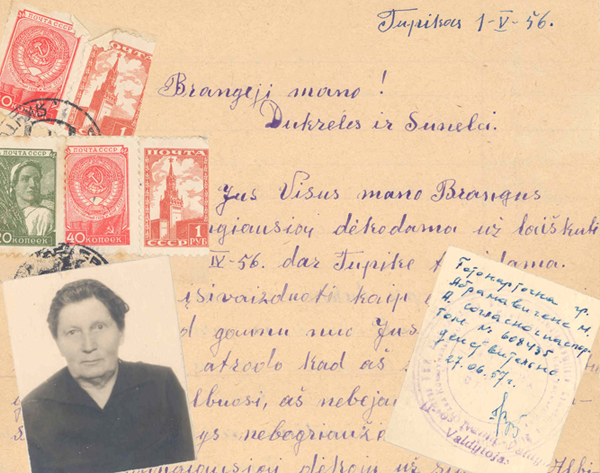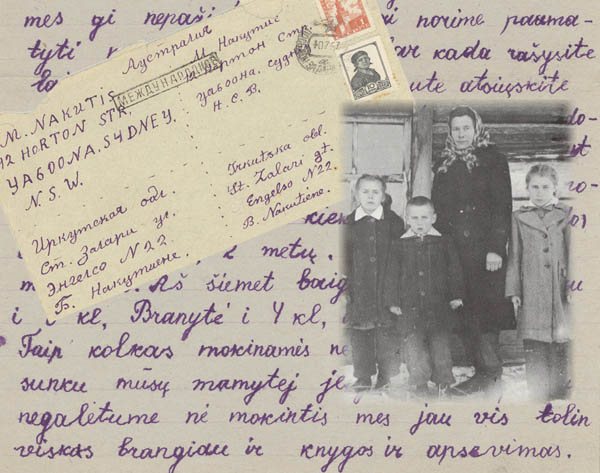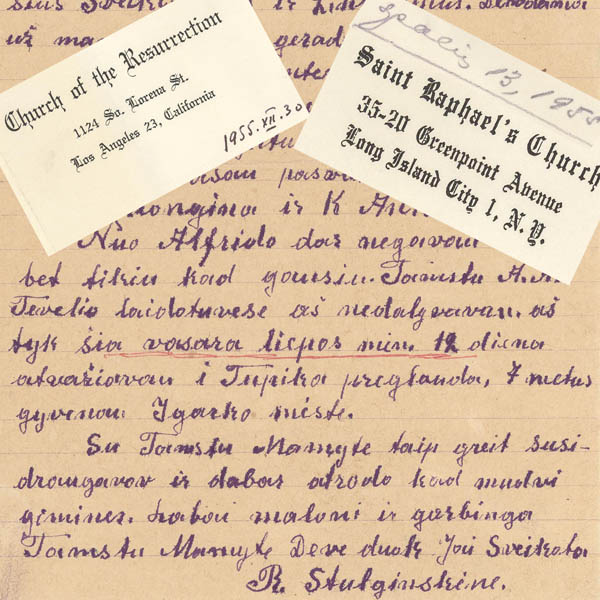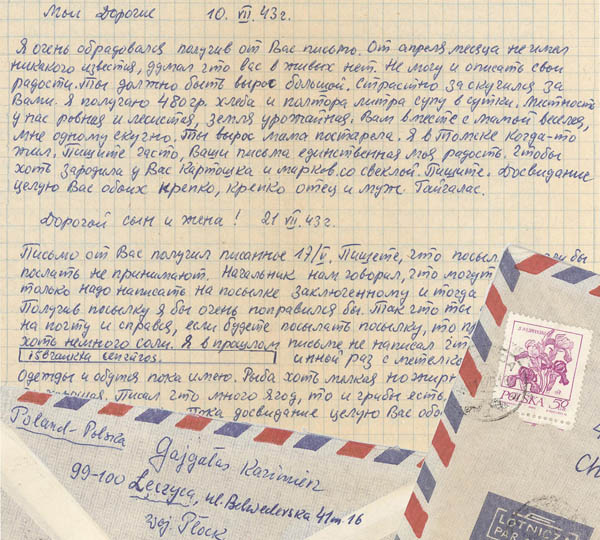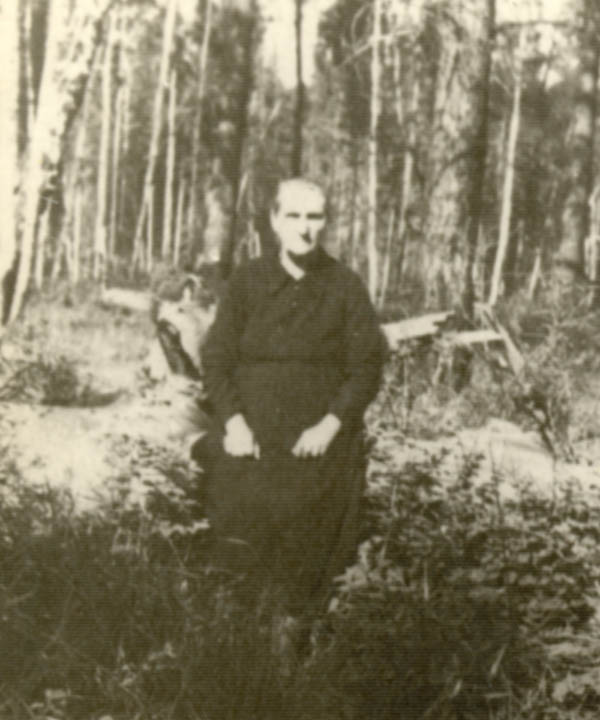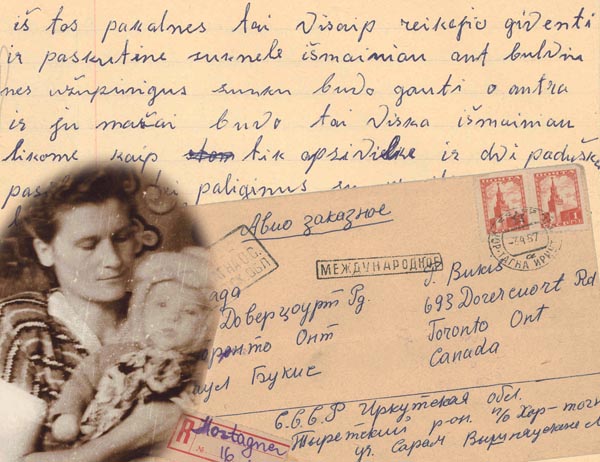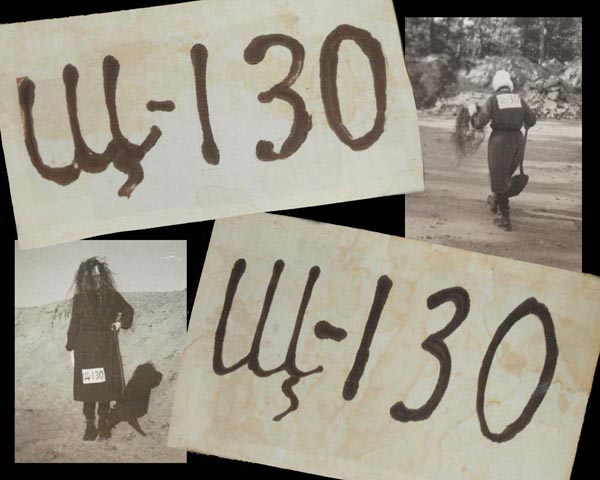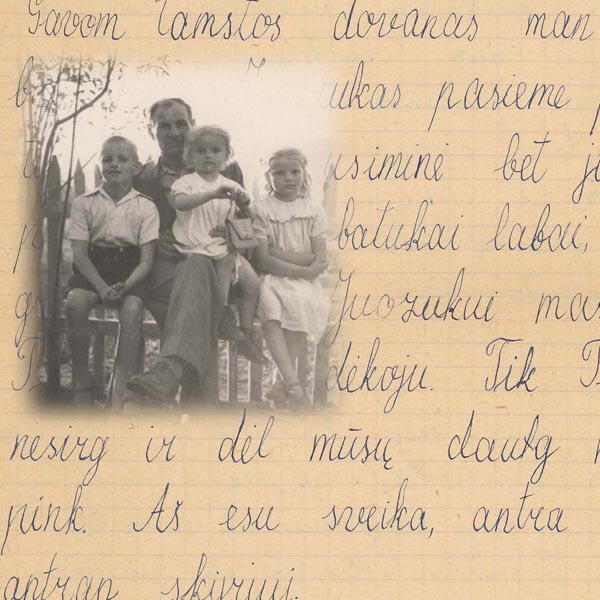$4 for one egg, $70 for a pound of butter
Morta Abromaviciene, at the age of 67, was deported to Siberia with her husband Stasys, who was 74. Mr. Abromavicius died 3 years later, while Mrs. Abromaviciene was able to serve her prison term in Tinsk, in the Krasnoyarsk District. After 7 years of hard labor, her health was broken–she was so frail and weak that she was transferred to the Tupik sanatorium, in the Shirinsky District of Khakassia, for one year to recover. It was while she was in the sanatorium, that she was able to write letters to one of her daughters, who was living in Chicago.


